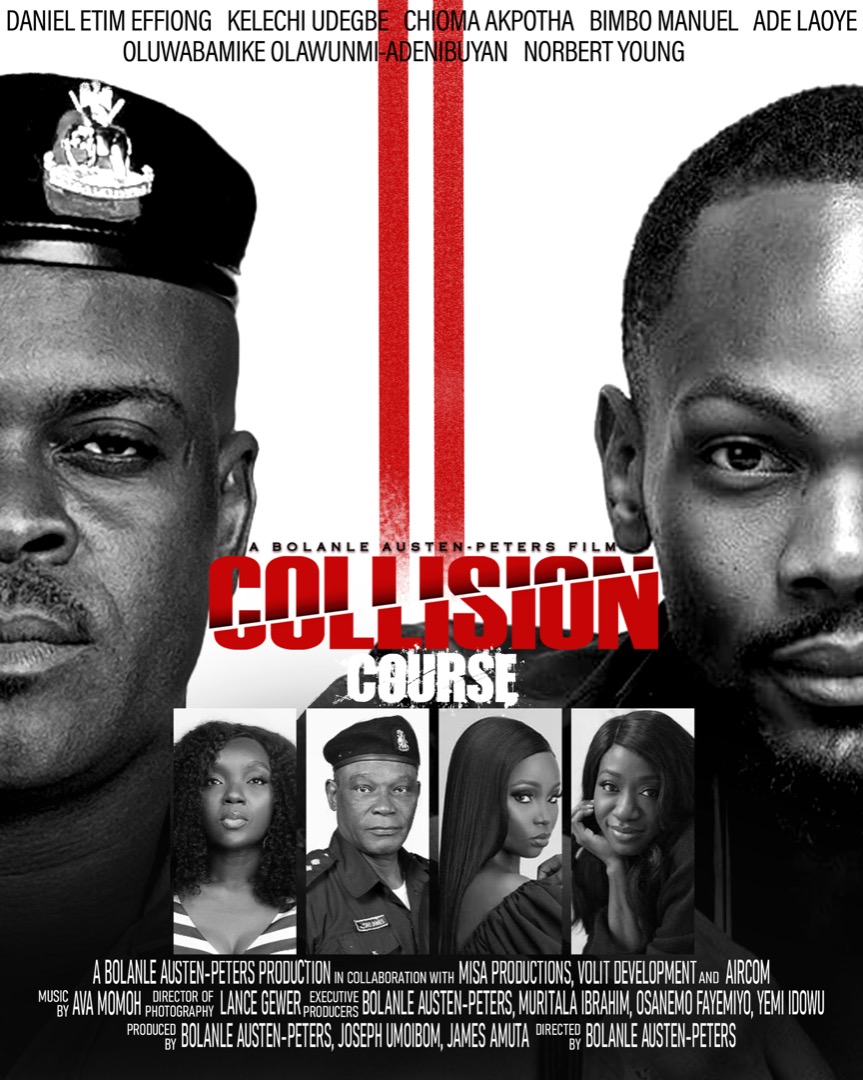The Bolanle Austen-Peters production Collision Course begins like an action film. The shaky, handheld camerawork over the shoulder of the protagonist includes the viewer in the kidnapping that takes place in the opening scene. Olumide Johnson is ripped out of his car by the burly men of the rogue police unit, TARS. He is taken to a harbour where he is coerced to enter his PIN into the card machine carried by one of the henchmen. Alongside him, another poor soul who has nothing in his account is executed before Mide as he is dumped back in his BMW.
The trauma of this incident revisits the lead character in flashbacks, which remind him that he must provide for his pregnant fiancee regardless of the mugging. Compounding his stress is the admonishment of a father who wants him to drop his music career and convert a law degree into a dependable income. “Passion has never put food on the table,” he reminds his son, “not here, not anywhere.”
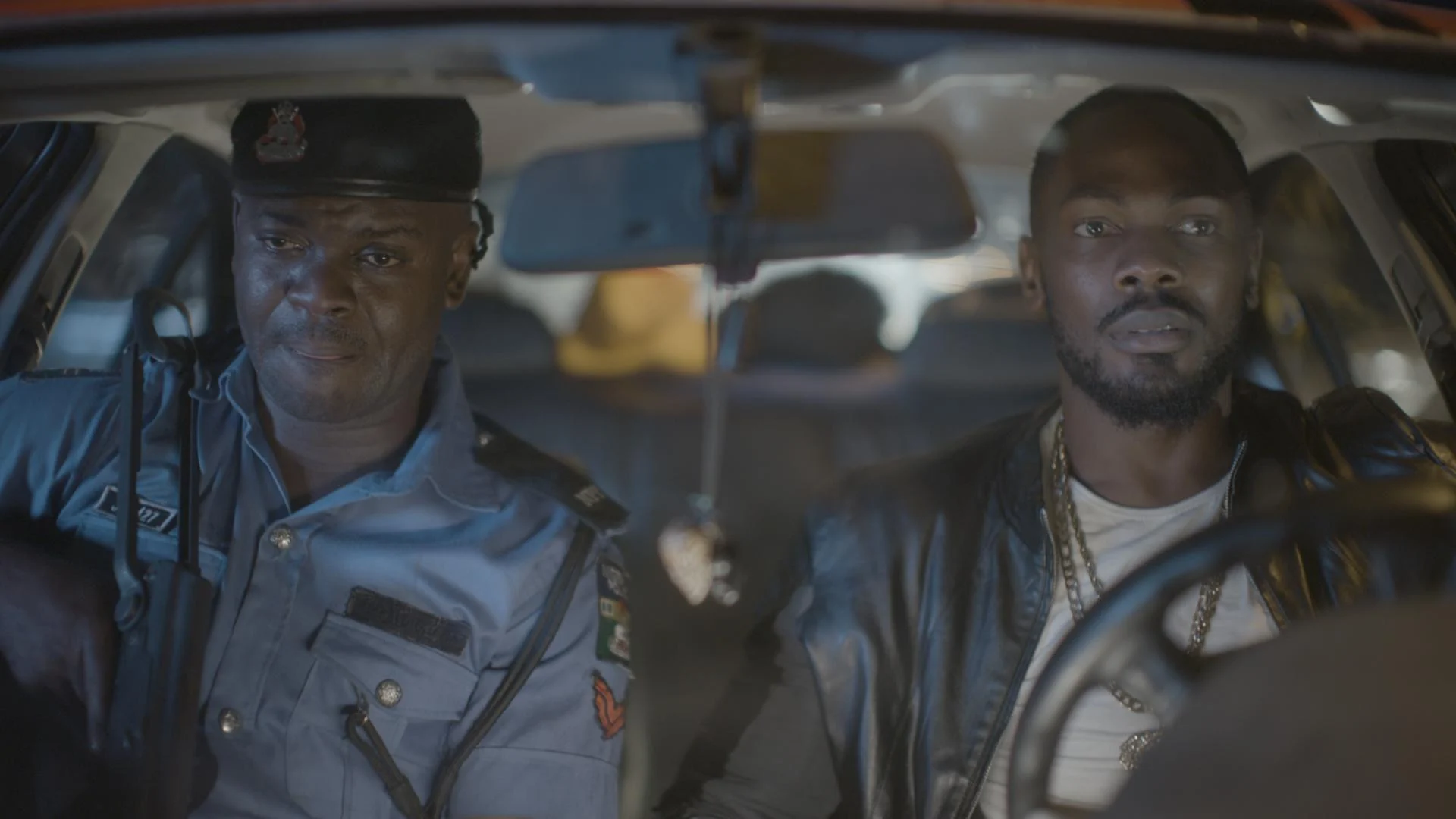
Substitute the T in TARS with an S and you have the Special Anti-Robbery Squad: a unit – ironically enough – known within the country and communities in Nigeria as specialising in extortion, harassment, rape, assault, torture and murder of Nigerian civilians. The target is usually men who appear well-off, like Collision Course’s Mide. It was a video of the shooting of youth outside the Wetland Hotel, Udelli, in southern Delta state in October 2020, which made the rounds on the internet and sparked the weeks-long protests known as #EndSARS or #SARSMustEnd.
Nigerians took to the streets to demand an end to endemic police brutality, but the protests, which took place across the nation of 200 million and in the diaspora, met resistance as the police denied the shooting, before authorities imposed round-the-clock curfews in five of the country’s 36 states. Anti-riot forces were deployed as police facilities were attacked, culminating in a hail of gunfire at a Lagos tollgate.
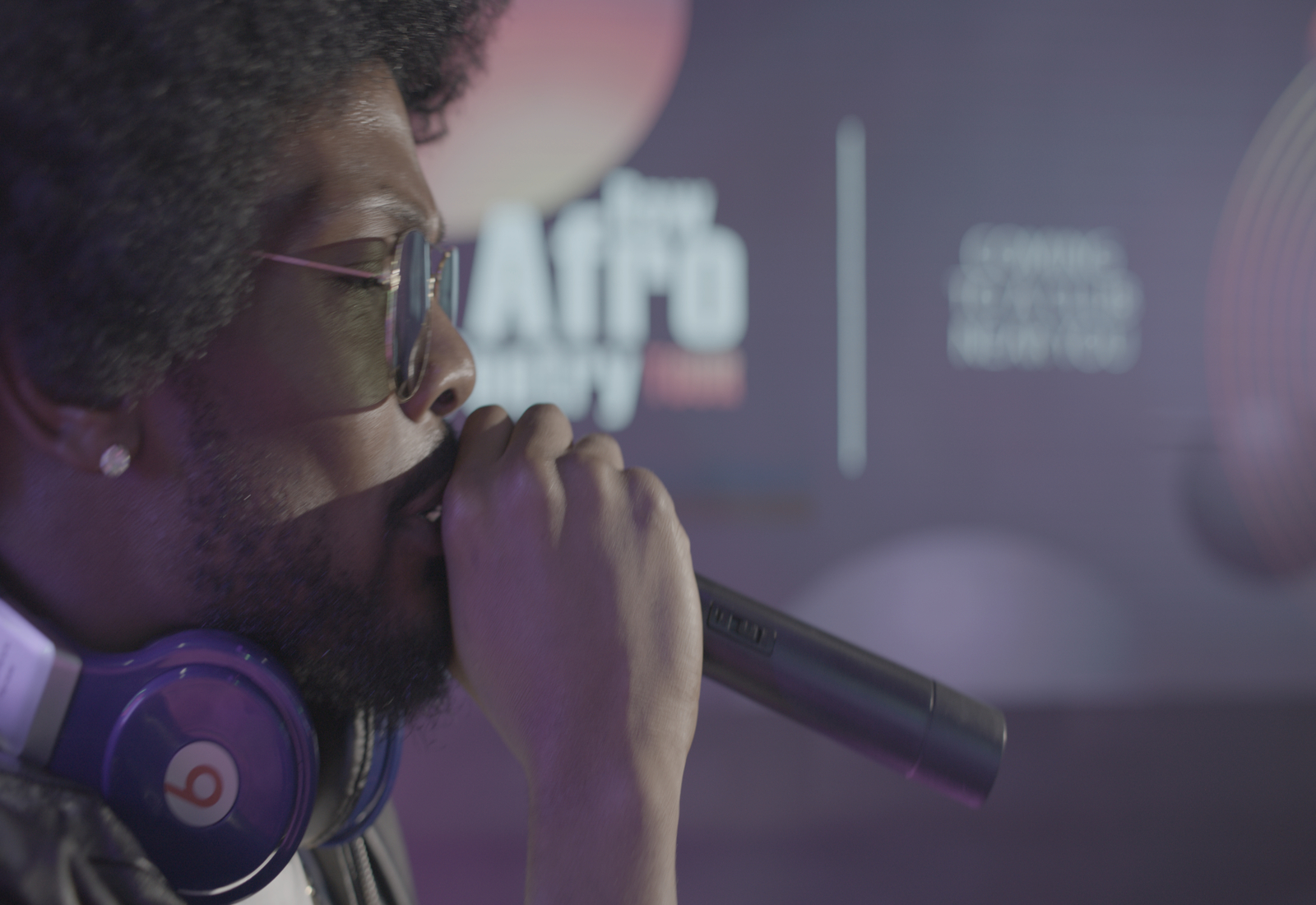
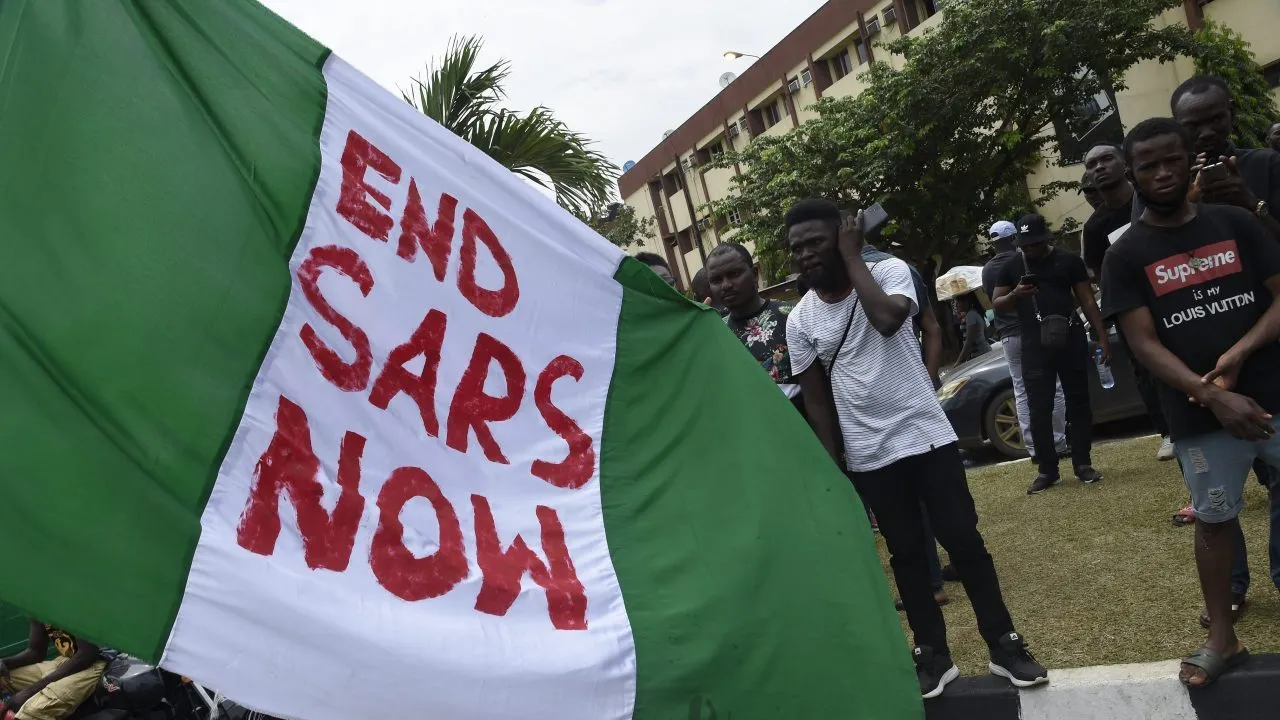
The protests were in service of a list of five demands addressed to the Federal Government of Nigeria, formulated and signed by “A Nigerian Youth”. On Sunday 11 October 2020, the same day Nigeria’s Inspector-General of Police Mohammed Adamu announced the dissolution of SARS, the list was published.
Demands included the immediate release of all arrested during the protests, as well as justice and compensation for the victims of police brutality. An independent body to investigate and prosecute all reports of police misconduct was also requested. The protesters asked for the psychological evaluation and re-education of SARS operatives before redeployment to other units, and lastly, for adequate increases in the salaries of the Nigerian police.
The makers of Collision Course, like the youth of Nigeria, are aware of the monetary imperative behind the police attacks. “We are all victims…brutalised by the system that we live in,” says director and producer Austen-Peters. The screenwriter of the film, James Amuta, includes himself in this economy of violence: “It’s a personal story for me. It was something that actually happened…I could have ended up shot or killed like the character.”
#EndSARS took place at the periphery of my consciousness before I saw Collision Course. Were it not for the Durban International Film Festival, where it premiered in South Africa, I might never have had to reflect on police brutality in the African context.
As Kofi Ofosu-Yeboah – a Ghanian contributor of another film at DIFF 2022 – deliberates, “We are too quick to say ‘Black Lives Matter,’…But all these things are happening in our [streets,] kitchens…bedrooms… [and] living rooms…What is that?” Unlike the US context, in Africa, the perpetrators of violence are none but ourselves, for reasons that are historically economic.
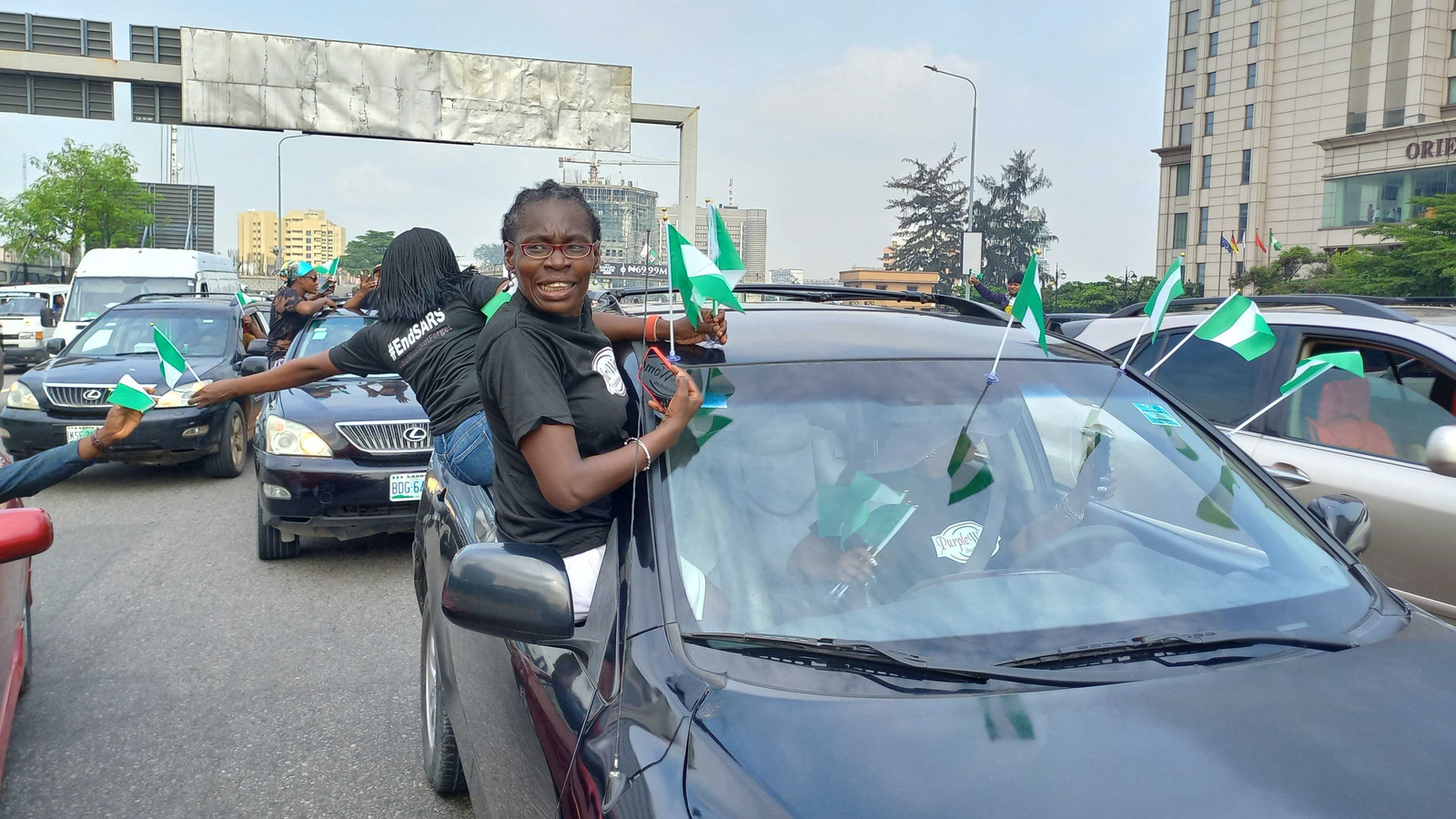
In South Africa, many see the police as solicitors of bribes, but not systemically oppressive to the same scale as that which Nigerians are experiencing. The Marikana Massacre of 2012 is perhaps one of the few reminders of the murderousness of which even the SAPS are capable. A film like Collision Course is provocative because even though not many South Africans fear they will one day suffer the same fate as George Floyd, our neighbours in Nigeria are familiar with this threat.
The civic awakening that was #EndSARS 2020 empowered Nigerian youth with the realisation that they are a force to be reckoned with in the socio-political arena. Until then, idle youth had been used as guns for hire by unscrupulous politicians who took advantage of their poverty. In the run-up to the Nigerian general election of 2023, the legacy of #EndSARS 2020 is that young voters do not have to be bystanders in the face of the sustained failures of the older citizenry and political elites.
This lesson applies to the populations of most African states, which make it the continent with the youngest average age on the planet. With the political will of the youth, there is no reason why – through sheer force of numbers – the present moment cannot be made more inhabitable for the young people of Africa.
